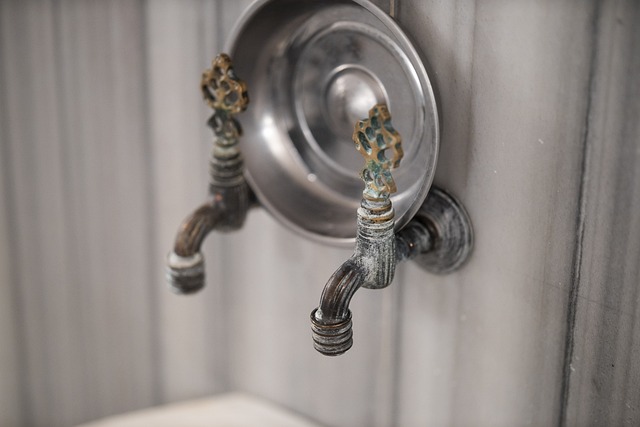Cold plunge therapy, including ice baths and cold pool immersions, is a popular practice among athletes for athletic recovery. It reduces muscle soreness and inflammation, speeds up healing through vasoconstriction, stimulates endorphin release for relaxation, and enhances microcirculation for improved performance and injury prevention. Regular post-workout cold water immersion offers immediate relief and long-term benefits for athletes of all levels.
“Unleash your body’s potential with regular cold plunge therapy—a game-changer in the realm of athletic recovery. This powerful tool, often used by elite athletes, offers a simple yet effective method to enhance muscle recovery and prevent injuries. Cold water immersion post-workout has gained popularity for its ability to reduce inflammation, alleviate muscle soreness, and improve overall athletic performance. Delve into this article to explore the science behind cold therapy, discover its numerous benefits, and learn how to incorporate cold plunges into your routine for optimal results.”
Understanding Cold Plunge Therapy: A Powerful Tool for Athletes
Cold plunge therapy has emerged as a powerful tool in the realm of athletic recovery. For athletes, incorporating this practice into their post-workout routine can offer significant benefits, such as reduced muscle soreness and enhanced recovery time. By immersing oneself in cold water, typically in an ice bath or cold pool, for a set period, athletes can stimulate a range of physiological responses that aid in injury prevention and performance optimization.
This therapy works by inducing vasoconstriction, which narrows blood vessels, reducing blood flow to the extremities. This process helps alleviate inflammation and muscle stiffness post-exercise. Moreover, cold water immersion promotes the release of endorphins, often referred to as ‘feel-good’ hormones, contributing to a sense of relaxation and improved mental clarity. As athletes strive for peak performance and aim to minimize injury risks, regular cold plunges can be a game-changer, offering both short-term relief from soreness and long-term benefits in athletic recovery and overall well-being.
How Cold Water Immersion Benefits Muscle Recovery and Injury Prevention
Cold water immersion, a popular practice among athletes, offers a multitude of benefits for muscle recovery and injury prevention. When an athlete engages in a cold plunge after a rigorous workout or intense training session, it triggers a cascade of physiological responses that aid in reducing inflammation and minimizing muscle soreness. The sudden exposure to frigid temperatures causes blood vessels to constrict, which reduces blood flow to the extremities and core. This process helps alleviate metabolic waste products, such as lactic acid, that can contribute to post-workout muscle discomfort.
Furthermore, cold water therapy stimulates nerve endings, triggering a response that blocks pain signals to the brain. This natural analgesic effect can provide significant relief from acute injuries and muscle strains. Regular post-workout cold water immersion also promotes faster recovery by enhancing microcirculation, allowing for quicker delivery of essential nutrients and oxygen to working muscles. As a result, athletes can experience improved athletic performance and reduced risk of injury over time with consistent cold plunge therapy practice.
The Science Behind Cold Therapy: Unlocking Athletic Performance Potential
Cold therapy has gained significant attention in the athletic world as a powerful tool for recovery and performance enhancement. The science behind this method is rooted in the physiological response of the body to cold water immersion, particularly after intense exercise. When an athlete enters a cold plunge or ice bath post-workout, it triggers a series of reactions that benefit muscle recovery and overall athletic potential.
The benefits of cold plunges for athletes are well-documented. It helps reduce inflammation, which is crucial for preventing muscle soreness and injuries. The cold temperature constricts blood vessels, limiting blood flow to the extremities and reducing metabolic waste products in the muscles. This process accelerates the removal of lactic acid, a by-product of intense exercise that can lead to delayed onset muscle soreness (DOMS). As a result, athletes may experience quicker recovery times, improved flexibility, and enhanced athletic performance over time. Cold water immersion also stimulates nerve endings, promoting the release of endorphins, which can reduce stress and pain, further contributing to an athlete’s well-being and readiness for future training sessions.
Incorporating Cold Plunges into Your Post-Workout Routine
Incorporating regular cold plunges into your post-workout routine can significantly enhance athletic recovery and overall performance. Cold water therapy, such as ice baths or cold water immersions, is a game-changer for athletes looking to reduce muscle soreness and inflammation. The benefits of cold plunges extend beyond immediate relief; they play a crucial role in preventing injuries by speeding up the body’s natural healing process and improving blood circulation in the affected areas.
Whether you’re an elite athlete or just starting your fitness journey, post-workout cold water immersion can be a powerful tool for injury prevention. By exposing your body to cold therapy, you stimulate vasoconstriction, which reduces swelling and pain. This, in turn, allows for better muscle recovery and prepares your body for the next training session. So, consider adding a cold plunge to your post-workout regimen to boost your athletic performance and keep injuries at bay.
Regular cold plunge therapy offers a powerful and effective strategy for athletes to enhance their recovery process, reduce muscle soreness, and prevent injuries. By incorporating this simple yet potent technique into their post-workout routines, athletes can unlock their athletic performance potential while ensuring their bodies are well-prepared for future training sessions and competitions. The science behind cold water immersion demonstrates its ability to speed up recovery times, improve circulation, and minimize inflammation, ultimately contributing to better overall athletic performance and a lower risk of injury.
